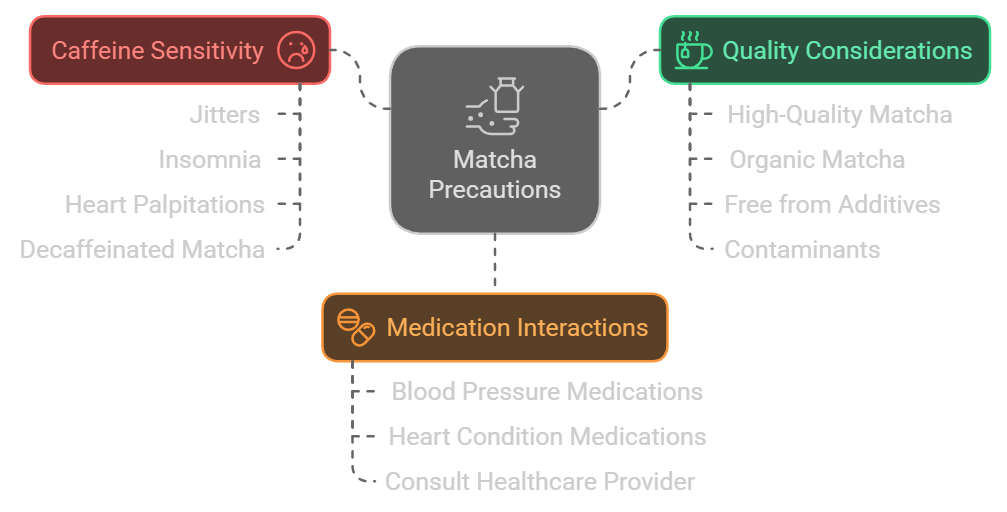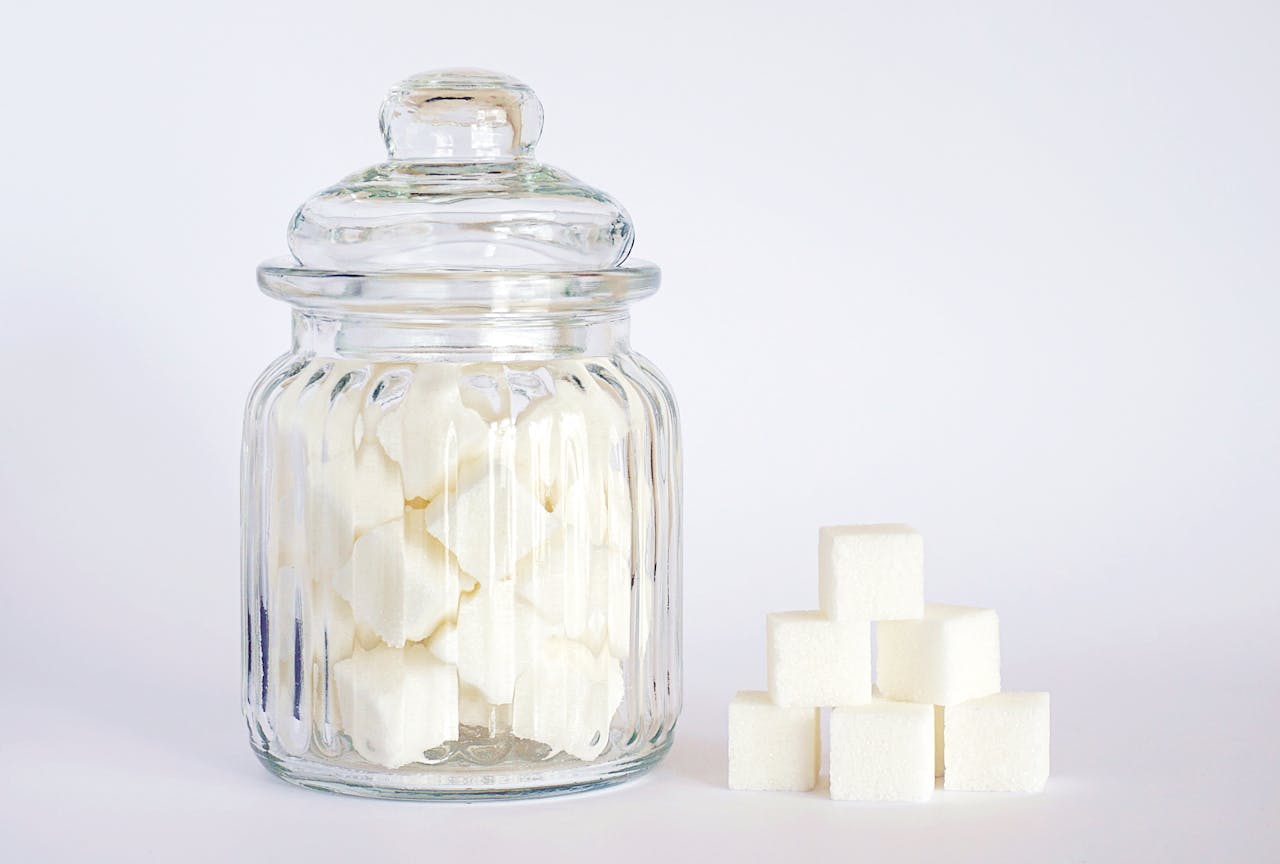Does Matcha Help You Lose Weight? Discover Its Powerful Benefits
In recent years, matcha has been embraced as a superfood with potential health benefits, including weight loss. But does matcha help you lose weight, or is it just another health trend? In this ultimate guide, we will explore the science behind matcha, its unique components, and how it can aid your weight loss journey. From its nutritional profile to research-backed weight loss benefits, you’ll discover how this vibrant green tea might be the secret weapon you’ve been looking for.

1. What is Matcha?
1.1 Definition and Origin
Matcha is a finely ground powder made from specially grown and processed green tea leaves. Unlike regular green tea, where leaves are steeped and discarded, matcha involves consuming the entire leaf, providing a more concentrated source of nutrients. Originating in Japan, matcha was traditionally used in tea ceremonies, but it has since gained global recognition for its health-promoting properties, including its role in weight management.
- Does Matcha Help You Lose Weight? Discover Its Powerful Benefits
- 1. What is Matcha?
- 2. The Science Behind Matcha and Weight Loss
- 3. Research-Backed Benefits of Matcha for Weight Loss
- 4. How to Incorporate Matcha into Your Weight Loss Plan
- 5. Potential Side Effects and Precautions
- 6. Matcha vs. Other Weight Loss Aids
- 7. Tips for Maximizing Matcha's Weight Loss Benefits
- FAQ
1.2. Nutritional Profile
Matcha is rich in antioxidants, especially catechins, which are known for their health benefits. It contains vitamins A, C, and E, minerals like potassium and iron, and a moderate amount of caffeine. One of the most important compounds in matcha is epigallocatechin gallate (EGCG), a potent antioxidant that has been extensively studied for its role in boosting metabolism and promoting fat loss.
1.3. Comparison to Regular Green Tea
While both matcha and regular green tea come from the same plant, Camellia sinensis, matcha offers more concentrated benefits. In fact, one serving of matcha provides the antioxidant equivalent of up to 10 cups of regular green tea. This makes matcha a more potent option for those seeking to enhance their overall health, including weight management.
2. The Science Behind Matcha and Weight Loss
2.1. Catechins and EGCG
The high levels of catechins, particularly EGCG, in matcha are one of the key reasons why it is believed to support weight loss. Catechins are natural antioxidants that boost metabolism and promote fat oxidation. EGCG, specifically, has been shown to increase the rate at which your body burns calories and breaks down fat. Studies suggest that the thermogenic effects of EGCG can lead to a noticeable increase in energy expenditure, even when you’re not exercising.
2.2. Caffeine Content
Matcha contains a moderate amount of caffeine—approximately 70 mg per cup—which is lower than coffee but higher than most other teas. Caffeine is known for its role in enhancing alertness and focus, but it also contributes to weight loss. Caffeine stimulates thermogenesis, the process by which your body generates heat and burns calories. Moreover, it enhances fat oxidation, helping your body use stored fat for energy, especially during exercise.
2.3. Thermogenesis
Thermogenesis refers to the body’s process of generating heat, which results in calorie burning. Matcha, due to its combination of caffeine and catechins, can enhance thermogenesis, allowing your body to burn more calories, even at rest. This process plays a crucial role in weight loss, as it increases your overall calorie expenditure, making it easier to create a calorie deficit—essential for shedding pounds.
RELATED: 13 Salt Water Tricks for Weight Loss
3. Research-Backed Benefits of Matcha for Weight Loss
3.1. Increased Fat Oxidation
Research indicates that the consumption of matcha can increase fat oxidation during exercise by up to 17%. This means that when you consume matcha before a workout, your body is more likely to use fat as a fuel source, aiding in the reduction of body fat over time.
3.2. Appetite Suppression
Matcha has been shown to influence appetite-regulating hormones, helping to reduce cravings and overall food intake. The presence of both caffeine and catechins can work together to suppress hunger, making it easier to stick to a calorie-controlled diet.
3.3. Enhanced Exercise Performance
Matcha not only helps burn fat but also improves exercise performance. The combination of L-theanine (an amino acid found in matcha) and caffeine provides a calm, focused energy, without the jitters associated with other stimulants. This can lead to more productive workouts, which is key when trying to lose weight.
3.4. Improved Insulin Sensitivity
One of the lesser-known benefits of matcha is its ability to improve insulin sensitivity, which helps regulate blood sugar levels. Improved insulin sensitivity allows your body to more effectively use carbohydrates for energy rather than storing them as fat. This is particularly beneficial for those looking to lose weight, as it helps prevent spikes and crashes in blood sugar that can lead to overeating.

4. How to Incorporate Matcha into Your Weight Loss Plan
Recommended Daily Intake
To reap the weight loss benefits of matcha, it is recommended to consume about 1–2 teaspoons (2–4 grams) of matcha per day. This equates to roughly 1–2 cups of matcha tea, depending on your tolerance to caffeine. Starting with a smaller dose and gradually increasing it is advisable, especially if you’re sensitive to caffeine.
4.1. Best Times to Consume Matcha
For optimal weight loss results, the best times to consume matcha are in the morning or before workouts. Drinking matcha on an empty stomach can help boost your metabolism for the rest of the day, while consuming it before a workout can enhance fat oxidation and improve performance.
4.2. Matcha Recipes for Weight Loss
Incorporating matcha into your daily routine doesn’t have to be limited to tea. Here are some delicious, weight-loss-friendly ways to enjoy matcha:
a.Matcha Green Tea Smoothie
Blend together a teaspoon of matcha powder, a banana, a handful of spinach, and almond milk. This smoothie is perfect for a morning energy boost or post-workout recovery.
b. Matcha Overnight Oats
Mix rolled oats with almond milk, a teaspoon of matcha powder, and chia seeds. Let it sit overnight for a nutritious, ready-to-eat breakfast.
c. Matcha Energy Balls
Combine dates, almonds, coconut flakes, and a teaspoon of matcha in a food processor. Roll into bite-sized balls for a healthy, on-the-go snack.
RELATED: Unlock 7 Effective Coffee Hacks for Weight Loss Success
5. Potential Side Effects and Precautions
5.1. Caffeine Sensitivity
While matcha contains less caffeine than coffee, it can still cause issues for those sensitive to caffeine. Side effects may include jitters, insomnia, or heart palpitations, especially if consumed in large quantities. If you’re sensitive to caffeine, consider starting with a smaller serving or opt for decaffeinated matcha.
5.2. Interactions with Medications
Certain medications, especially those related to blood pressure or heart conditions, may interact with the caffeine or other compounds in matcha. It’s important to consult with a healthcare provider before adding matcha to your routine, particularly if you are taking any medications.
5.3. Quality and Purity Considerations
Not all matcha is created equal. To experience the full benefits of matcha, it’s crucial to choose a high-quality, organic matcha powder, free from additives or fillers. Low-grade matcha may contain contaminants such as pesticides, which can negate the health benefits and potentially pose risks to your well-being.

6. Matcha vs. Other Weight Loss Aids
6.1. Comparison with Other Teas
While other teas like oolong or black tea also contain caffeine and catechins, matcha is superior due to its higher concentration of these compounds. The process of grinding whole leaves into powder maximizes the beneficial components, making matcha a more potent weight loss aid compared to brewed teas.
6.2. Matcha as Part of a Holistic Approach
While matcha can aid in weight loss, it’s essential to remember that it is not a magic solution. The most effective weight loss strategy involves a holistic approach, including a balanced diet, regular physical activity, and good sleep hygiene. Matcha can support these efforts, but sustainable weight loss requires consistency and lifestyle changes.
7. Tips for Maximizing Matcha’s Weight Loss Benefits
7.1. Combine with a Balanced Diet
For matcha to truly enhance your weight loss, it should be paired with a nutrient-dense, balanced diet. Focus on whole foods like fruits, vegetables, lean proteins, and healthy fats. Avoid processed foods high in sugar and unhealthy fats that can hinder your progress.
7.2. Pair with Regular Exercise
Regular physical activity is crucial for weight loss. Whether it’s cardio, strength training, or a combination of both, matcha can help boost energy and fat burning during workouts, allowing you to reach your fitness goals more effectively.
7.3. Stay Hydrated
Hydration plays a key role in weight loss. Drinking water throughout the day helps control hunger, flush out toxins, and keeps your metabolism running smoothly. Incorporating matcha into your daily routine alongside ample water intake can further optimize your weight loss results.
7.4. Get Adequate Sleep
A good night’s sleep is often overlooked in weight loss efforts, but it is just as important as diet and exercise. Poor sleep can lead to hormonal imbalances that increase hunger and fat storage. Incorporating matcha in the morning can help improve focus and energy, potentially leading to better productivity and reduced reliance on sugary snacks that hinder weight loss.
Matcha offers a promising array of benefits when it comes to weight loss. Its unique combination of catechins, caffeine, and antioxidants can help boost metabolism, increase fat oxidation, and even suppress appetite. However, the key to effective weight loss lies in incorporating matcha into a balanced lifestyle that includes a healthy diet, regular exercise, proper hydration, and sufficient sleep. By making matcha a part of your daily routine, you can unlock its full potential and support your journey towards a healthier, leaner you.
FAQ
Does matcha really help with weight loss?
Yes, matcha has been shown to boost metabolism, enhance fat burning, and suppress appetite, making it a helpful addition to a weight loss plan.
How much matcha should I drink for weight loss?
Consuming 1–2 teaspoons of matcha per day (1–2 cups of matcha tea) is generally recommended for weight loss benefits.
Can I drink matcha on an empty stomach?
Yes, drinking matcha on an empty stomach in the morning can help kickstart your metabolism for the day.
Is matcha better than green tea for weight loss?
Yes, matcha is more concentrated in antioxidants and catechins than regular green tea, making it a more potent option for weight loss.
Should matcha be consumed before or after exercise for weight loss?
For optimal results, it’s best to consume matcha about 30 minutes before exercise to enhance fat oxidation and improve performance.




